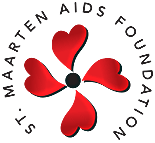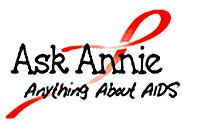testing: a priority in AIDS prevention
I Found Out I am HIV-Positive!
Reaction to a positive result is different for everyone. But for most people, it is one of a terrible shock. Over time, you'll find a way of dealing with it that suits you, but it might be quite different to the way other people cope with it.
If you have been tested positive, keep the following in mind:
(1) Remember that thousands of people live full and rewarding lives despite HIV - you can do it too.
(2) Don’t feel rushed or pressured to do anything or make major decisions until you can think clearly. Major medical decisions should be made together with your healthcare provider and only when you are sure that the treatment strategy is one that you wish to pursue.
(3) Find someone who can give you non-judgmental emotional support. It may be a trusted friend, relative, neighbor, therapist, clergyman or a support group. Even if you have never asked anyone for help before, now is the time for you to ask. If you ask for help, and the person you ask doesn't give it to you, try another person.
If you don't know anyone who could provide the non-judgmental support that you need, ask your doctor, the St. Maarten AIDS Foundation, the Health Department, the Red Cross, the Turning Point Foundation for referrals.
(4) Arm yourself with information. HIV can bring anxieties. One way of tackling these are through getting information, by learning about your condition, gaining confidence in it, in yourself and making informed choices for your future.
(5) Decide who you want to tell about your status. Who you tell or not is your business and only your business. This is the time for you to think of your personal well-being. You don't have to tell anyone until it feels right for you, until you are ready. Also, keep in mind that telling the right people can provide much needed emotional support and relieve you of the burden of keeping it all inside.
(6) Talk to someone who has already been through it. Organizations like H.O.P.E. (the support group for persons living with HIV/AIDS on St. Maarten - link) can provide you with peer counselors who have been through what you are experiencing, some of whom are long term survivors. Such groups can be an invaluable source of information and emotional support. No one understands what you are going through as well as someone who has already been there him/herself.
(7) Prepare for your visits with your health care provider. Write down your questions beforehand and write down the answers that you receive. You will have a great many questions for your health care providers. Don’t rely on your memory. Having everything in writing will give you the opportunity to deal with your concerns at your leisure and when you are ready to do so.
(8) Take it one step at a time. Do things at your own pace. Don't worry about not doing the "right" thing, not doing enough, or not doing things fast enough. There is no "right" way there is only what is right for you. So do what you have to do and only you know what's best for you.
(9) Many persons living with HIV (initially) experience feelings of depression or loneliness. If you feel depressed, seek help. Talk to someone you trust or to your doctor.
Where Can I Receive Counseling on Living With HIV?
Some doctors give good counseling on HIV, others might feel less confident to give counseling on this topic.
The St. Maarten AIDS Foundation has counselors available. You can contact us via this website, or call:
Rae Merlet at +553-2626, or Dr. Gerard van Osch at +544-5374.
On French St. Martin, you may obtain free counseling from AIDES (+011 590 590 276 523), SIDA Liaisons Dangereuses (+011 590 590 870 117) or from CIDDST (+011 590 590 522 674). Counseling is available in English, Spanish and Haitian Creole.
Who Can I Turn to for Help?
On St. Maarten some of the support systems can be found at:
- H.O.P.E., Helping Ourselves in a Positive Environment.
This is a support group by and for persons living with HIV/AIDS. The group meets once a month at a safe location. There is also the possibility to meet one on one with a member or counselor of the group, if you don’t feel comfortable yet to meet in a larger group.
H.O.P.E. is meant to give support, a listening ear, a shoulder to lean on, but also a source for invaluable information about every aspect of living with HIV/AIDS.
Contact: Dr. Gerard van Osch, M.D. - Tel: 721-544-5374
- St. Maarten AIDS Foundation
A nonprofit organization that works on awareness, education, support, care and treatment in the field of HIV/AIDS.
Contact: Rae Merlet - Tel: 721-553-2626
- Turning Point Foundation. An organization that assists those that have addiction problems.
Contact: Tel: 543-2131 (to be confirmed).
- Your family doctor, church, community organization.
Who Should I Tell?
Much thought should go into who you reveal your status to, and how you should do so. Unfortunately, it's a fact of life that there can still be a lot of stigma attached to an HIV diagnosis, especially in some cultures and backgrounds.
Telling close friends and family can provide enormous relief and support, but it can also cause problems. Do people really need to know? Do they need to know now?
Your Partners (current and past)
Think through your past partners and if you have had unprotected sex with them before you knew your status, you should consider telling them. This is so that they can get tested too, and start addressing their own health issues, if any. This can protect other people from getting infected as well.
Your Workplace
You present no risk to your coworkers since HIV cannot be transmitted via casual contact. You are under no legal obligation whatsoever to disclose your HIV status to your employer and coworkers. Therefore whether you disclose your status or not is entirely up to you.
In addition, you should not be screened for HIV as prerequisite for employment, although in some industries a screening may be part of the induction process (e.g., for healthcare industries).
You may, however, decide that it is best to disclose your status if you find that HIV is making it difficult for you to perform your job (due to actual illness or side-effects of your medication, for example). Your employer may be more receptive to providing “reasonable accommodation”, such as reduced work hours or a job-share arrangement, so that you may focus on getting healthier. You may contact the St. Maarten AIDS Foundation for advice and coaching in broaching this topic with your employer.
Your Healthcare Providers
Health care providers can give you more appropriate medical care if they know you complete medical history. Disclosing your status to your health care team is important, especially as your HIV medication and other related illnesses can affect your other medical treatment. However, if you are undergoing an examination or a procedure that is not related to your HIV (for example, at a chiropractor), you do not need to disclose your status.
It is also not necessary to disclose your status to your dentist. All dentists are required to use Universal Precautionary Procedures to reduce the risk of cross infection during dental work. http://www.halc.org.au/downloads/Disclosure.pdf (caveat: the laws applied in this document are that of Australia)
You may also visit the following pages for further information – Treatment Options, H.O.P.E, Healthy Lifestyle, Pregnancy, Ask Annie



